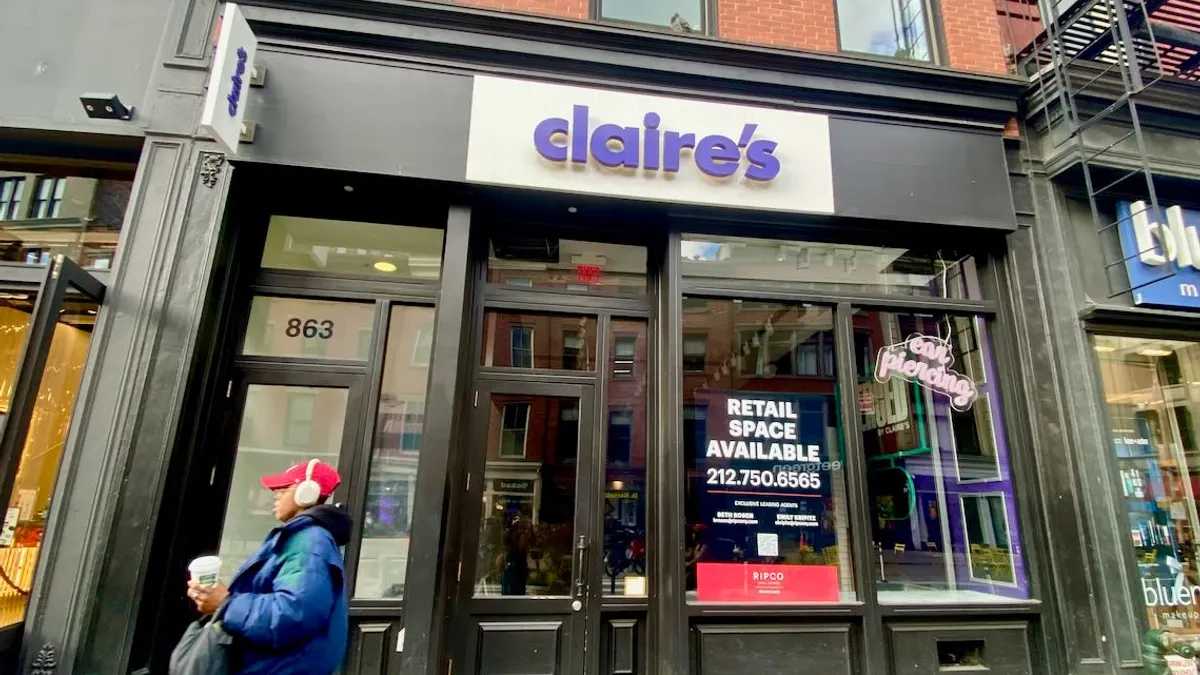Nike has garnered much attention over the last few months, for better or for worse. The brand earlier this month announced it would begin selling apparel, accessories and shoes on Jet.com — the Walmart-owned e-commerce marketplace that caters to wealthier, urban millennials.
The partnership isn't the first of its kind for Nike. Last year, the company shocked many when it began selling directly on Amazon. At the time, some industry experts warned the move may blow back on Nike. But at the end of last year, CEO Mark Parker told analysts the partnership was "going well" and that the company would expand its pilot sales on the channel.
Now, it seems to be expanding its marketplace sales strategy to include selling one of Amazon's biggest rivals. On the topic, the discussion forum RetailWire asked its BrainTrust panel of retail experts the following questions:
-
Do you see any issues with Nike selling directly on Jet.com's revamped website with the platform's connection to Walmart?
-
How would you assess the benefits versus risks for Nike in partnering with Jet.com versus Amazon?
Here are eight of the most provocative and insightful comments from the discussion. Comments have been edited by Retail Dive for length and clarity.
1. Others will follow Nike's stride
Cathy Hotka, Principal, Cathy Hotka & Associates: There has been discussion about brand dilution when selling on the Jet.com marketplace or on Amazon, but Nike's decision to join apparently renders it moot. When a brand as distinctive and recognizable as Nike agrees to make itself available through this platform, other companies will follow suit.
2. Not your grandma's Walmart
Harley Feldman Co-Founder and CMO, Seeonic Inc: Nike's selling on Jet.com will expand its market presence as Walmart is moving its image to more upscale products (this is not your grandmother's Walmart anymore!). Nike is such a well-known brand that it should not detract from that image as it expands to a larger retail buying presence through outlets like Amazon or Jet. I expect the Nike experience at Jet will be innovative to grab the consumer's attention, and it will become another opportunity to touch a new set of shoppers.
The only downside risk is that the brand becomes diluted as it continues to expand to new targeted shoppers based on the Jet demographic. Given its strong image, this risk should be limited.
3. Good play
Dave Wendland, Vice President, Strategic RelationsHamacher Resource Group: I see this as a good move for three reasons: 1.) Consumers want Nike products; 2.) Consumers want "anywhere” access; and 3.) Nike wants to remain top of mind.
Could there be differentiated assortments curated for Jet and Amazon that don't alienate Nike loyalists? Perhaps. Can Jet and Amazon provide faster, broader reach? Most definitely. Do the benefits outweigh the risk? Absolutely.
4. The Walmart stigma
Nikki Baird, VP of Retail Innovation, Aptos: It's clear that higher-end brands still see a big stigma attached to selling through Walmart, as the recent flap over outdoor brands demonstrated. But with Jet Black and some of the other things that Walmart has done with the brand, it seems like Jet.com has escaped that stigma.
So, I go back to what Nike fundamentally is: a brand. While they have made enormous investments in stores and reaching directly to consumers, ultimately, any channel where they sell Nike is going to at least accrue sales directly to Nike. Whether that's good for the brand or not — well, that was why Nike decided to engage with Amazon in the first place, to try to get them to be more active against counterfeiters.
In the end, I think Nike's partnership with Jet.com both benefits from Walmart's efforts to make it upscale and lends credibility to those efforts.
5. What kind of marketer would turn this down?
Gene Detroyer, Professor, International Business, Guizhou University of Finance & Economics; Executive Director, Global Commerce Education: What marketer in his/her right mind would ignore an opportunity to participate in the largest marketplaces that reach their target customers? We aren't talking Cartier, we are talking NIKE.
It is the responsibility of the brand to control its brand image. It is the responsibility of Jet to sell the products in whichever way is best for them.
As far as risks go, I see no worries. This is no different than Nike having a store in a city's upscale mall and mid-market mall.
6. All part of Jet's last-minute upscale play
Cynthia Holcomb, Founder | CEO, Prefeye - Preference Science Technologies Inc: Nike is an accidental player in the last minute play to revive Jet.com as an upscale urban Walmart. Whether Nike basics for the Amazon masses or the Nike cool PR factor for Jet.com urbanites, Nike is struggling to identify why and where Nike product distribution fits into the digital economy.
7. No surprises here
Neil Saunders, Managing Director, GlobalData: Jet is now focusing on exactly the type of shoppers that Nike sells to. As such, this partnership is not so much of a surprise. Yes, Jet is owned by Walmart but I am sure Nike understands the point of different brands — after all, it owns many brands itself.
8. The inevitable
Ken Morris, Principal, Boston Retail Partners: Selling Nike products on these marketplaces does nothing to tarnish the Nike brand, as Nike products are widely available today on Amazon and Walmart.com through other retailers and distributors. The move for Nike to sell directly on these platforms is probably inevitable. If Nike is concerned about protecting its retail channels by not cannibalizing their sales, they could limit the products they sell directly on the marketplaces to product models that are exclusive to Nike branded store or Nike's online.





















